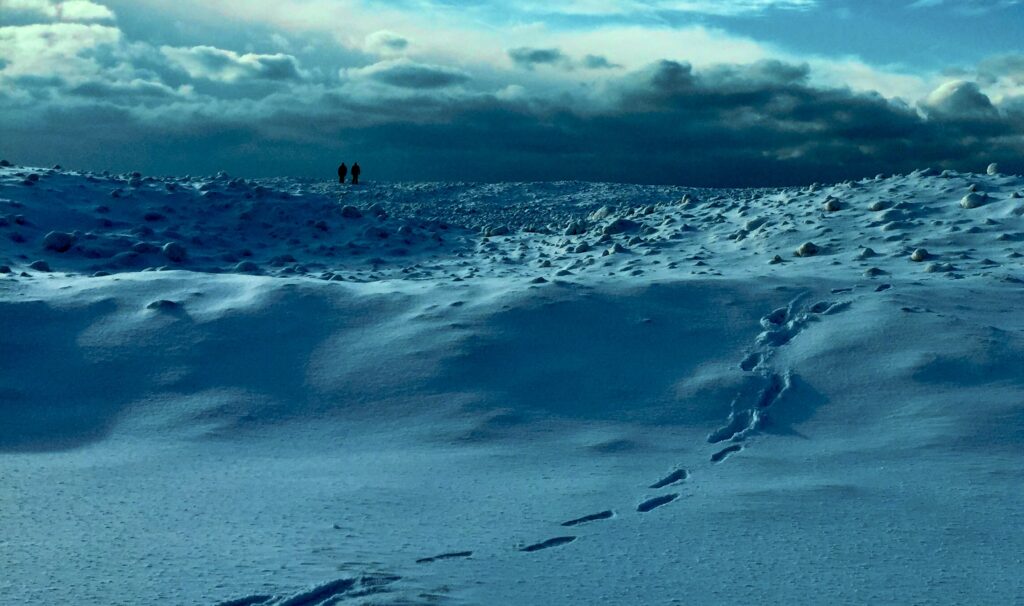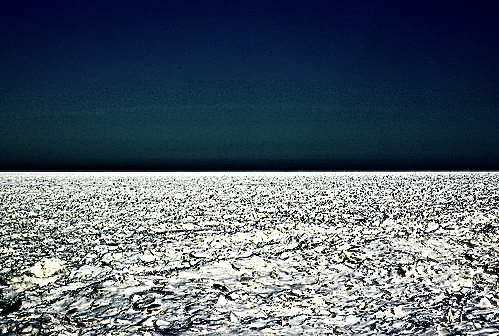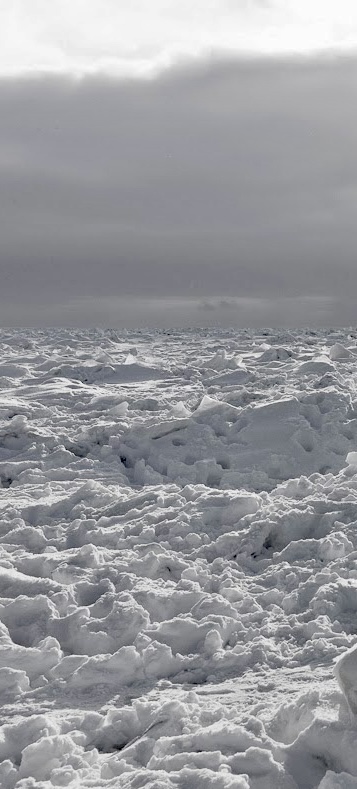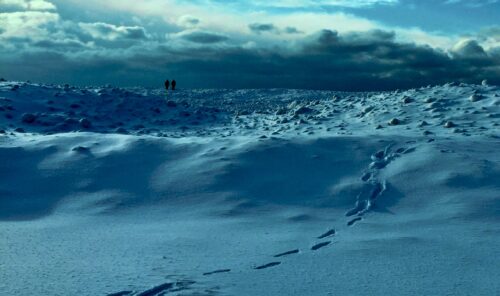By Scott Holleran

Bigger and smarter than most boys his age, Steve Detty had something else that most eighth grade peers wanted: a patch of thick brown hair above his lip, forming a mustache. Steve, who was captain of the soccer team, earned straight A’s. He was knowledgeable and passionate about top recording artists. Steve Detty was not the most popular in class, though he ranked in an upper echelon. He treated everyone like a friend.
Besides energy and charisma, Steve—who was also remote—spoke with urgency while remaining elusive about the facts of his life. Taller than other boys, more muscular with a light olive complexion, Steve was faintly exotic. He looked like he could be a student at preparatory school, equally at ease on an athletic field as in the orchestra pit—Steve played trombone in the school band—and he also looked like he could row a boat off the coast of Hawaii. His voice had a slight crack, thanks to puberty. Girls wanted to smother Steve. Boys wanted to know him. Teachers wanted to have him in class.
Steve Detty was affable and unusual. Freckled John Hannigan learned about this combination during a quiet, gray day at Lake Michigan’s shore. The two had become friends within a small band of boys that sat in the back of an English class. They bonded over the Beatles. John and Steve had similar taste, favoring the Liverpool quartet’s early recordings. They liked the melodic hooks, clarity and sentimentality; they liked early Beatles songs without regard for the boys in the back of English class, who dismissed the whole era. No one else in class cared about the Beatles. This bonded John and Steve. They started buddying up in gym class, training for the annual school sporting competition. They walked to Newton Park and swung from metal bars on the playground, all while talking about life, the Beatles and the prettiest girls in school.
Over the previous summer, they spun into different socio-cultural orbits. Steve went with nerds and jocks. John went to camp and on family vacations. They reunited during the fall for the opening semester of eighth grade, growing closer, though Steve was quieter and moodier. John wasn’t sure why but he sensed there was trouble at home. “It turns out my parents are getting a divorce,” Steve confided during a walk after school one afternoon. “They told me last week. I’m sure everything will be fine,” Steve told John as he looked up at trees before looking over with an awkward smile. “I’m not worried,” he added. “I know it’s for the best but it’s weird.” “Gee, Steve,” John started to say, having never considered this topic, “I’m sorry about your folks.” “It’s alright,” Steve replied, jauntily throwing his arm around John, pulling John closer. “How are things at home with you?”
John struggled with what to say. He didn’t know how to respond. No one had asked him about his life at home. He rarely had friends over. His parents were not getting a divorce. They argued, yelling at each other—sometimes, throwing things across the room—and John knew his family was chaotic. He also knew that Steve Detty didn’t have siblings. John felt a rush of warmth in the cold autumn wind with Steve’s arm around him as they rounded a corner. “It’s OK,” John said as he shrugged. The boys went quiet, lost in their thoughts.
“Hey,” Steve suddenly said with a jolt of excitement, “let’s go down to the beach.”
At that, they picked up the pace. Within a mile, after darting across Sheridan Road, they stood on a bluff overlooking Lake Michigan as the wind whipped up. They watched the waves come ashore as an old man walked his dog. “Laura Rosen lives over there,” Steve said, pointing to a curved black lakefront high-rise. “I haven’t been there,” Steve said, “but I heard it’s fancy.” John nodded, adding: “Yeah, my sister’s friend lives there.”
The boys stood side by side, looking over the vast, great lake. They thought about the future, family, school, sports and their friendship. Neither Steve nor John spoke. John watched the man and dog make their way up a paved incline near the high-rise. Steve stared at the horizon, lost in his gaze. “Steve, I have to get home,” John softly said. “Yeah, sure,” Steve replied, “we’ll take Chestnut.” That’s the way they went, crossing Sheridan Road as the sun fell down.
Later that fall, they stood on the bluff again. When Newton Park’s playground closed due to weather, Steve gave John his weightlifting hand grips. “Here,” he said at the bluff, “use these when you lift weights at school.” When John asked, Steve, who gave John his Beatles “Let it Be” album, too, said he wouldn’t need them anymore.
A snowstorm marked the change of season. Afterschool walks meant snowball fights and slower walks on ice. Steve didn’t talk about the divorce. He didn’t start conversations about the Beatles. This fell to John, who initiated and carried their talks. Instead, Steve Detty became animated about other topics. He talked about going to college, high school and being a doctor. John Hannigan turned to his friend and told him: “You sure are eager to grow up,” as they headed toward Steve’s house. Steve Detty shrugged.
Weeks passed until one day, Steve, bounding with energy, playfully bumped John in the hall after the final bell rang. This was on a frigid winter day when temperatures had fallen lower than the previous day’s below-freezing temperatures. “Let’s go to the beach,” he said. “What’re we gonna do there?” John asked. “Follow me,” Steve said with a grin.
Off they went, trudging through snow and across ice, stomping in slush with rubber boots and crossing Sheridan Road. By the time they made it to the frosted bluff, John was in awe. He’d never seen the whole lake frozen over. Squinting at the white expanse of Lake Michigan, he stared in wonder. “Wow…it’s completely iced.” “It’s beautiful,” Steve whispered in reply. “No one’s here. Come on!” Steve nudged John, walking toward the high-rise, where the paved path sloped to the beach. “Come on, John!” Following Steve, who’d grown taller, bigger and stronger, John smiled at the prospect of seeing the frozen lake up close; he struggled to keep up.

Everything was placid, frozen and white. The boys slowed, balancing backpacks and taking steps in heavy, laced rubber boots with deliberate, practiced precision. The abandoned beach was silent except for a low, whistling wind. Snow swirled in gusts, peppering their reddened faces with pinpricks as they looked down and walked along hardened, icy-patched sand. “Next year’s high school,” Steve said, going toward the Great Lake. “Yeah,” John answered, breathing heavily, striving to keep up, “it’s going fast.”
“Pretty soon, it’ll be time to figure out where to go to college—” Steve stepped onto the ice-covered lake, which made John stop and stare, “and I’m going to go east.” “Steve…I don’t think that’s a good idea,” John said, changing the topic. “What?” His friend asked. John was stupefied as Steve kept walking onto the iced-over Lake Michigan. John gestured with his arm spanning the whole lake, “that—walking on an iced-over lake. The ice can break and you’ll fall in,” he explained, “and I can’t swim.”
“Oh, don’t worry. It’s fine—” Steve said, venturing out farther onto the ice.
“You’ve been out here before?” John asked from the beach, still shocked and terrified.
“No, but, I’m telling you, it’s fine,” Steve’s voice was harder to hear above the wind as he walked out on the lake, “come out here, John. I wouldn’t say it’s safe if it wasn’t. I’m not going to fall through the ice or let you go under…how do you like the idea of college?”
John wanted to keep the conversation going. Tentatively, he put his left foot on the ice. It felt solid and thick. “It does seem fine,” he said to himself.
“It’s great!” Steve called back as he marched toward Michigan.
Slowly, John followed Steve’s path on the icy lake, which was jagged with sharp, angled miniature ridges on snow-capped ice that had been shaped by the biting Lake Michigan wind. One false step and the boys could trip over one of the protruding ice formations and fall on the ice and fall hard. “I don’t know,” John muttered to himself. “Come on,” Steve urged, “don’t be scared. I’m right here.” As John followed Steve’s zig-zag path, the cold afternoon air turned colder as the cloud-covered skies lost sunlight and turned a darker shade of gray. The boys talked about college, and how their older friends and John’s siblings had changed at college. As they talked, Steve walked farther until he was nearly a mile away from the shoreline. John, who had also progressed, was within earshot of Steve’s voice. John turned and looked back. The bluff looked small. He felt thrilled.

By the time he turned around, Steve was gone. John’s heart skipped—until he felt a tap on his shoulder. “Boo!” Steve said, laughing as John turned around and saw his friend standing behind him. “Gotcha!” Steve laughed—John, who was irritated, smiled—and Steve asked John: “Are you gonna miss me when I go east to college?”
“Not really,” John lied, forcing a chuckle, as if he was relaxed about the prank, which he did not like. “I need to go home, Steve. My mom’s gonna start worrying.” Steve put his hand on John’s shoulder and looked him in the eye. “John, you’re with me—it’s just us here, there’s no one else—isn’t this great?!” John wanted to say yes. John also wanted to exit the ice, which, he had to admit, felt thick and sturdy under his weight. Steve looked at John and, considering his smaller, slighter friend, said: “OK, let’s go.” Steve took John’s gloved hand and gripped it.
“No worries—”
In the next instant, the ice beneath them cracked and gave way. The pair plunged into the lake. With backpacks, heavy coats, boots, sweaters and gloves, Steve’s frame and their gripping hands, John and Steve went under water fast, going deep with velocity.
The funerals were held the day before Christmas Eve. Most of the school attended. John’s mom and Steve’s dad sat side by side at the cemetery, surrounded on either side by respective spouses and extended families. It was later determined that John’s lungs had taken in water and, though he thrashed about and tried to surface, John Hannigan struggled, hit his head on the ice and finally went limp. Steve Detty, his father disclosed, had previously attempted suicide. Mr. Detty had sought to intervene on his son’s behalf but Steve’s mother had objected and Steve failed to get the therapy he needed. Only child Steve and John, the youngest of six, drowned that winter in the icy lake. Steve’s parents divorced. Neither remarried. John’s family never really got to know him. No one did.
The legend of John and Steve lingered for a while. A stone memorial was erected—a tablet paid for by the school’s booster club—at the bluff. Eventually, it was dismantled and removed when the property was taken by the county to build state-mandated, low-income housing. A lone classmate, Jean-Paul Giroux, who recalled the boys sitting in the back of English class, remembered the lessons of their tragic lives and chose to act upon what he knew. Jean-Paul, who had skipped college and moved to a studio apartment in Wrigleyville, tended bar and become a songwriter, wrote about the doomed duo and recorded a song. He titled his tune: “Ballad for Boys Who Love the Beatles.”

Award-winning author, writer and journalist Scott Holleran lived in Chicago for 21 years and writes the non-fictional Industrial Revolutions column as well as short stories. Read and subscribe to his non-fiction newsletter, Autonomia, at scottholleran.







